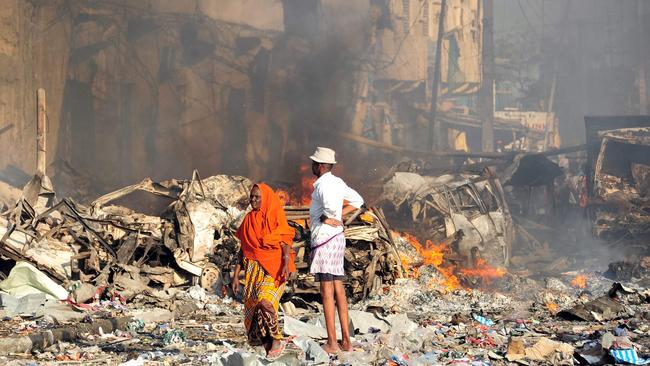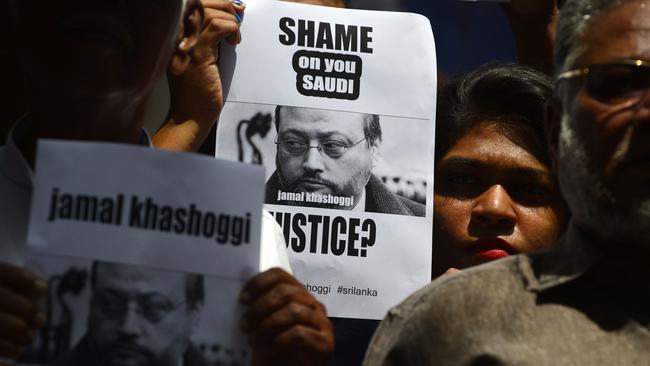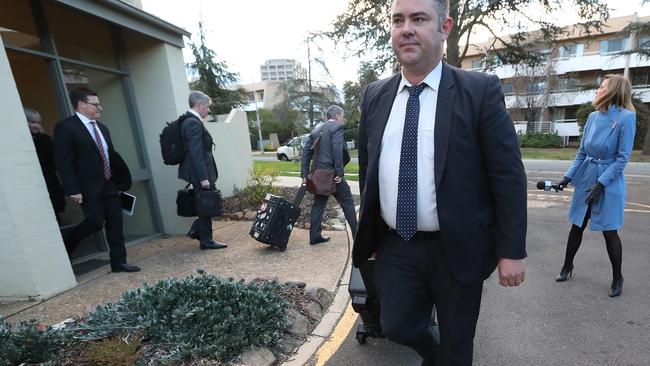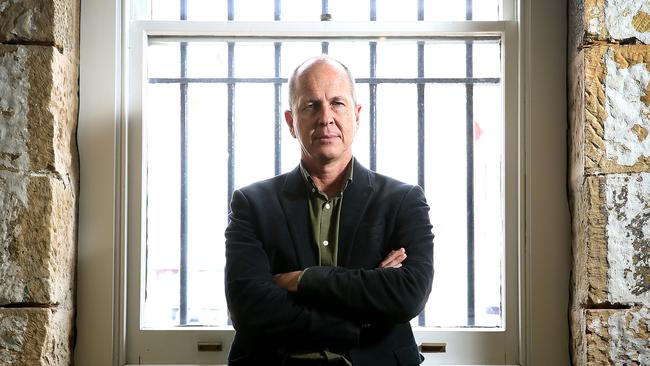Peter Greste: Dutton's press freedom plea shouldn't ease our concern
Home Affairs Minister Peter Dutton may have requested the AFP consider the importance of a free press, but don't be fooled. We shouldn't take our hands off the wheel just yet, writes Peter Greste.
RendezView
Don't miss out on the headlines from RendezView. Followed categories will be added to My News.
Somalis understand the value of a free press. Once, I saw demonstrators turn on riot police who tried to stop local journalists from covering an anti-government protest in the capital Mogadishu.
“Shame on you,” one incensed lady shouted at the police as they forced the journalists back with batons. “Without them, nobody will hear any of us.”
Somalia has one of the world’s worst records for assaults on the press. Since the Committee to Protect Journalists began counting the numbers in 1992, 79 journalists and media workers have been murdered.
MORE FROM PETER GRESTE: AFP raids an attack on the liberty of all Australians
Countless others have been assaulted and threatened, yet locals still voraciously consume and vigorously defend the handful of independent newspapers brave enough to continue publishing.


They also get it in Afghanistan, where for more than two decades through the 80s and 90s, apart from a handful of foreign journalists, the only people allowed to report were propagandists for the government and the militias. The same in Sudan, where protesters have died in an ongoing struggle to shake off one of the world’s most authoritarian regimes, and introduce some measure of democracy including the freedoms most Westerners take for granted.
Those who live in dictatorships understand something fundamental that seems to have been lost in our own debates around press freedom since the Australian Federal Police raided journalists from two news organisations back in June. Without it, all people are left with is government propaganda.
RELATED OPINION: Freedoms that underpin our democracy are at risk
Press freedom is not so much about protecting the rights of a handful of privileged journalists to stick their noses into the guts of government.
It is about protecting the right of ordinary citizens to have a source of information about their government and the powerful that isn’t state-sanctioned puffery.

It is about the system of transparency and accountability that is such an essential part of any properly functioning democracy.
In short, it is about the public’s right to know.
In the current digital world, where we all have access to vastly more information that at any other point in human history, it is easy to feel well informed. But quantity is not the same as quality.
Even before the AFP raids, my organisation — the Alliance for Journalists’ Freedom — had been looking at the legislation that restricts the flow of government information, and limits the ability of journalists to look into its inner workings. We became so concerned that we published a White Paper with seven recommendations for legislative reform.
RELATED: Your right to know is our greatest concern
As we examined the web of national security laws, it became clear that together, it was acting as a straitjacket on journalism, quietly and gradually squeezing the life out of independent reporting, and either directly or indirectly damaging that system of transparency that makes democracy work.

It doesn’t always happen in obvious ways. Several news organisations have decided not to publish stories clearly in the public interest, because of the risk of being dragged into court to fight defamation cases that could drive them to bankruptcy. Defamation laws are necessary, but Australia’s allow payouts in the millions that are vastly disproportionate to the harm caused and end up stifling legitimate and important reporting.
RELATED: Annika Smethurst raid was more than an invasion of privacy
Data retention legislation was sold to us as vital for the security agencies to intercept terrorist communications. The law gives a host of government agencies — not just the security services — the capacity to look at the metadata of any Australian without a warrant. The only exception is journalists, but those warrant applications take place in secret courts, and the journalists are never told that they are the targets of investigation. That means it is almost impossible for journalists to protect the identity of sources. Without that protection, journalists report that their sources are drying up.
In 2018, the government passed the Espionage and Foreign Interference Act. Before the final vote, three independent UN human rights experts who routinely criticise authoritarian regimes felt compelled to speak up. They warned, “the Bill would impose draconian criminal penalties on expression and access to information that is central to public debate and accountability in a democratic society.”

None of this is to suggest that Australia is about to become an authoritarian dictatorship any time soon. But the network of laws now in place, and actions like the AFP raids, are starting to draw comparisons that none of us should feel comfortable about.
Last week, I was in London at a Global Conference on Media Freedom hosted by the foreign secretary Jeremy Hunt. An old friend who is now the head of the BBC’s Persian Service said he’d heard about the AFP raids and asked me to fill him in on the background. When I’d finished explaining, he gave a knowing smile.
“Ah,” he said. “It sounds just like Iran.”
Peter Greste is the UNESCO Chair in Journalism and Communication at the University of Queensland, and a founding director of the Alliance for Journalists’ Freedom.
Originally published as Peter Greste: Dutton's press freedom plea shouldn't ease our concern


